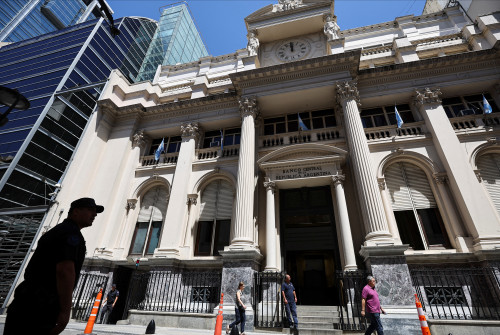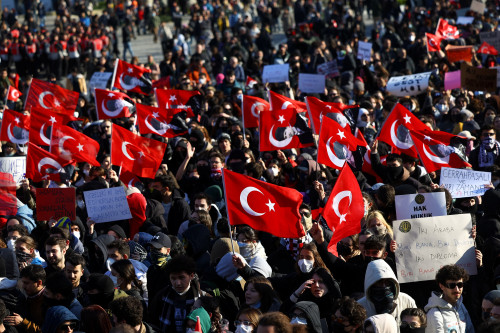By Stella Qiu
SYDNEY (Reuters) -Australian business and consumer surveys showed on Tuesday that storm clouds were gathering for the economy, with a slowdown in business activity accelerating and spending confidence staying near recession levels, amid warnings of more rate hikes to come.
A survey from National Australia Bank (NAB) that is closely watched by the Reserve Bank of Australia (RBA) showed its index of business conditions fell by a sizeable seven points to +8 in May, coming off highs seen in the last year.
Business confidence also slid back to negative territory, and, worryingly, forward orders, a leading indicator of demand, contracted in May, highlighting the risks to growth in the months ahead.
“There is a growing risk that the RBA’s attempts to maintain an even keel ‘run aground,'” said NAB Chief Economist Alan Oster. “The trend over coming months will be important as the RBA tries to assess whether it has done enough and if underlying inflation pressures are easing in a timely way.”
The survey, however, pointed to persistent price pressures, with the measure of labour costs and purchase costs accelerating, in a concern for the RBA.
The central bank has raised rates by a whopping 400 basis points since May last year to an 11-year high of 4.1% and warned more increases may be needed.
NAB on Tuesday raised its call on peak rates in the current cycle, adding two more quarter-point hikes to 4.6%. The bank lowered its 2023 economic growth forecast to 0.5% from 0.7%, while forecasting the jobless rate would rise to 5% by end-2024 from 3.7% in April.
Markets are now pricing the risk of two more hikes, and see rates staying elevated for the remainder of the year.
CONSUMERS UNDER THE PUMP
Data from Westpac and Commonwealth Bank of Australia (CBA) also points to the strains consumers are feeling as high living costs and surging mortgage rates erode spending power.
The Westpac-Melbourne Institute index of consumer sentiment rose 0.2% in June to 79.2. But that masked a significant difference before and after the RBA’s latest hike on June 6, with the confidence reading coming in at 72.6 after the increase, versus 89.0 before.
The year-ahead outlook for family finances and economic conditions dipped 2.1% and 0.1% respectively, while the measure of whether it was a good time to buy a major household item fell by 5.7% in June.
Bill Evans, chief economist at Westpac, said falling confidence around jobs was of most concern in the survey, given that had been a bright spot in otherwise bleak responses over the last year.
Unemployment expectations rose sharply, with a sub-index surging 6.6% to 131.3, marking the first weaker-than-average reading since May last year.
CBA payments data released on Tuesday showed there were signs that people were switching to public transport to save on petrol and car park costs, and working parents needed to work more hours to make ends meet, as indicated by higher childcare spending.
“Consumer spending is generally weak and we expect it will slow further given the RBA’s interest rate rises and with more on the horizon,” CBA Senior Economist Belinda Allen said.
(Reporting by Stella Qiu; Editing by Kim Coghill and Jamie Freed)





